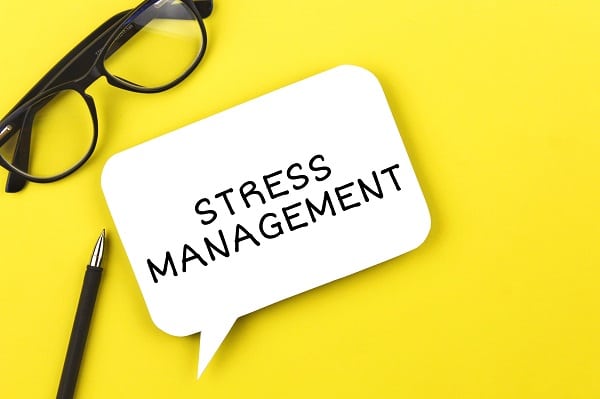In society today, people often find that weight loss and a healthy lifestyle are commonly sought-after goals, yet they remain elusive for many. The importance of these two aspects cannot be overstated, as they both significantly contribute to your overall wellness. This blog post aims to shed light on practical, evidence-based strategies for weight loss and the pursuit of a healthier lifestyle. Let’s delve in and start this enlightening journey towards better health and well-being.
Contents
Understanding The Importance Of Weight Loss And Healthy Living
A healthy weight is not merely a number on the scale. It’s a key contributor to longevity, mental health, and energy levels. Studies have repeatedly shown that maintaining an ideal body weight reduces the risk of chronic diseases, improves mood, and boosts overall quality of life. On the other hand, being overweight or obese significantly raises the risk of heart disease, diabetes, certain cancers, and other health problems.
But, achieving and maintaining a healthy weight isn’t only about preventing disease. It’s also about boosting your energy levels, feeling good about yourself, and being able to do the things you love with ease and confidence. The path to healthy living isn’t about drastic changes or unrealistic goals—it’s about finding balance, making sustainable choices, and taking it one step at a time.
Strategies For Weight Loss And Healthy Living
The following sections will discuss various evidence-based strategies that can help you achieve your weight loss goals and foster a healthier lifestyle. These strategies encompass a wide range of lifestyle modifications, from dietary habits to physical activity, sleep hygiene, stress management, hydration, regular health check-ups, and sustainable changes. Each strategy is interlinked and contributes to a holistic approach to weight management and overall health.
Balanced Diet

A balanced diet is one of the essential components of weight management and overall health. It involves consuming a variety of nutrient-rich foods in the right proportions to achieve and maintain a healthy body weight. The key is to prioritize whole foods, such as fruits, vegetables, lean proteins, whole grains, and healthy fats, while limiting processed foods, which are often high in unhealthy fats, sugars, and sodium.
Creating a balanced diet doesn’t have to be a daunting task. Start by focusing on portion control—learning to recognize correct portion sizes can help you avoid consuming extra calories. Also, consider planning your meals ahead of time, ensuring that each meal includes a good balance of macronutrients—carbohydrates, proteins, and fats—and is rich in vitamins and minerals.
Regular Physical Activity

Regular physical activity plays a crucial role in achieving and maintaining weight loss. It not only helps burn calories but also improves heart health, strengthens muscles and bones, reduces stress, and boosts mood. The amount and type of exercise needed can vary depending on your age, sex, health status, and weight loss goals. However, it’s generally recommended that adults get at least 150 minutes of moderate-intensity or 75 minutes of vigorous-intensity aerobic activity each week, along with muscle-strengthening activities on 2 or more days a week.
Incorporating exercise into your daily routine can be as simple as choosing to walk or bike to work, taking the stairs instead of the elevator, or joining a local fitness class. It’s important to find a form of exercise you enjoy—this way, you’re more likely to stick with it. Remember, every bit of physical activity counts, and it all adds up to contribute to your weight loss goals.
Adequate Sleep

Sleep often gets overlooked when discussing weight loss strategies, but research suggests that it shouldn’t be. Sleep deprivation can interfere with the body’s hunger hormones, leading to increased appetite and, consequently, weight gain. It can also cause fatigue, making it harder to engage in physical activity and make healthy food choices. Thus, getting adequate, quality sleep is a vital part of a successful weight loss strategy.
There are several ways to improve your sleep hygiene. These include maintaining a regular sleep schedule, creating a restful sleep environment, limiting exposure to screens before bedtime, and managing stress. If you continue to struggle with sleep, consider talking to your healthcare provider—they can help identify any underlying issues and suggest appropriate solutions.
Stress Management

Chronic stress can lead to weight gain and other health problems. When you’re stressed, your body releases hormones such as cortisol, which can increase appetite and lead to overeating. Over time, this can contribute to weight gain and other health issues, such as heart disease and diabetes.
Mindfulness-based techniques can be particularly effective in managing stress. This could involve practices like yoga, deep breathing, meditation, or even simple mindful eating. Regular exercise and adequate sleep also play a significant role in stress management. Additionally, consider seeking support from mental health professionals if stress becomes overwhelming.
Hydration

Staying well-hydrated is another often overlooked but crucial strategy for weight loss. Proper hydration helps control appetite, increases metabolism, and supports overall bodily functions. Also, sometimes, we can confuse thirst with hunger, leading to unnecessary calorie consumption.
To stay well-hydrated, try to carry a water bottle with you at all times and sip throughout the day. Incorporating water-rich foods, such as fruits and vegetables, into your diet can also contribute to your hydration status. Remember, the amount of water needed can vary based on factors such as age, sex, weight, activity level, and climate.
Regular Health Check-ups

Regular health check-ups are essential for monitoring your weight and overall health. These check-ups can help identify potential health issues before they become serious and provide an opportunity to discuss any weight concerns with healthcare professionals. Regular check-ups also allow for necessary adjustments to your weight loss plan based on your progress and current health status.
What to expect during health check-ups can vary, but they typically involve a review of your medical history, physical examination, and sometimes laboratory tests. It’s important to be open with your healthcare provider about your health concerns, including weight management, so they can provide appropriate advice and support.
Sustainable Lifestyle Changes

Finally, it’s important to note that effective weight loss involves sustainable lifestyle changes rather than quick fixes. Short-term diets often lead to quick weight loss followed by rapid weight regain, while sustainable changes promote long-term weight loss and maintenance.
When setting weight loss goals, be realistic and patient with yourself. It’s also crucial to maintain motivation throughout your weight loss journey—this could involve finding a support group, tracking your progress, celebrating small victories, and remembering that setbacks are just part of the process.
Start Your Weight Loss Today!
Now that you have a better understanding of the importance of weight loss and healthy living, it’s time to take action. Remember that small changes can lead to significant results, so start with one or two strategies that you feel comfortable incorporating into your lifestyle. Whether it’s drinking more water, going for a brisk walk, or planning your meals ahead of time, every step counts towards a healthier you. Stay motivated, be kind to yourself, and remember that achieving a healthy weight and lifestyle is a journey, not a destination. Good luck on your journey towards better health and well-being!


